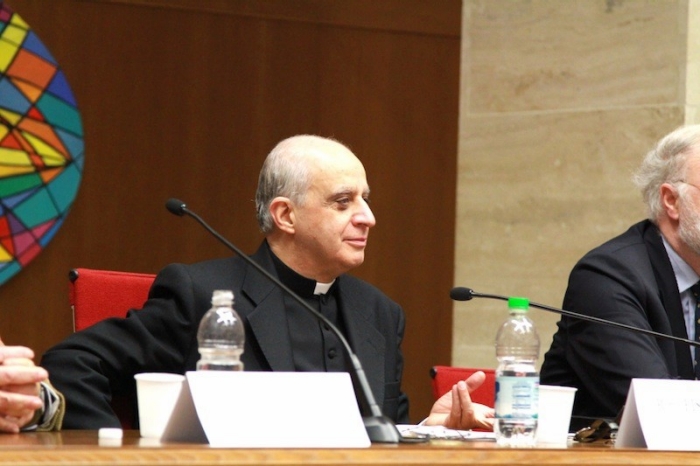Talk by H.E. Msgr. Rino Fischella

BRIEFING FOR THE PRESENTATION OF THE APOSTOLIC LETTER "MOTU PROPRIO" UBICUMQUE ET SEMPER OF THE HOLY FATHER BENEDICT XVI INSTITUTING THE Pontifical Council for the Promotion of the New Evangelization
12-10-2010
One of the peculiar traits of Christianity is its conception of being deeply embedded in history. The words of Jesus to his disciples when he reminds them of being in the world but not of the world (cf. Jn 15.19, 17.13 to 14), have been interpreted as a fundamental commitment to share the vicissitudes of history, while knowing that the ultimate goal that revael the full meaning of the events goes beyond the history itself. On this subject, among other things, it is easy to recognize one of the most popular teachings of Vatican II, that aimed to emphasize, more strongly than earlier in the past times, the concept of salvation history.
This premise allows you to compose a reflection before the Apostolic Letter, Ubicumque et semper, with which the Holy Father establishes the Pontifical Council for the Promotion of the New Evangelization. First, we are grateful to Pope Benedict XVI for this insight profoundly prophetic. It looks realistically at present time of the Church, and promises a journey that will engage not just in the near future.
We live in a time of great challenges, affecting the behavior of entire generations, due to the conclusion of an era with the entry into a new phase in the history of mankind. There are a lot of positive elements, which allow to see a more coherent engagement in the life of faith - also due to a deeper knowledge of its content - as well as forms of "detachment from the faith" as a result of a widespread form of religious indifference, prelude for a de facto atheism. Often the lack of knowledge of the basic contents of faith leads inevitably to take on forms of moral judgment and behavior often at odds with the essence of faith, as it has always been proclaimed and lived during the course of twenty centuries of our history.
[...]



